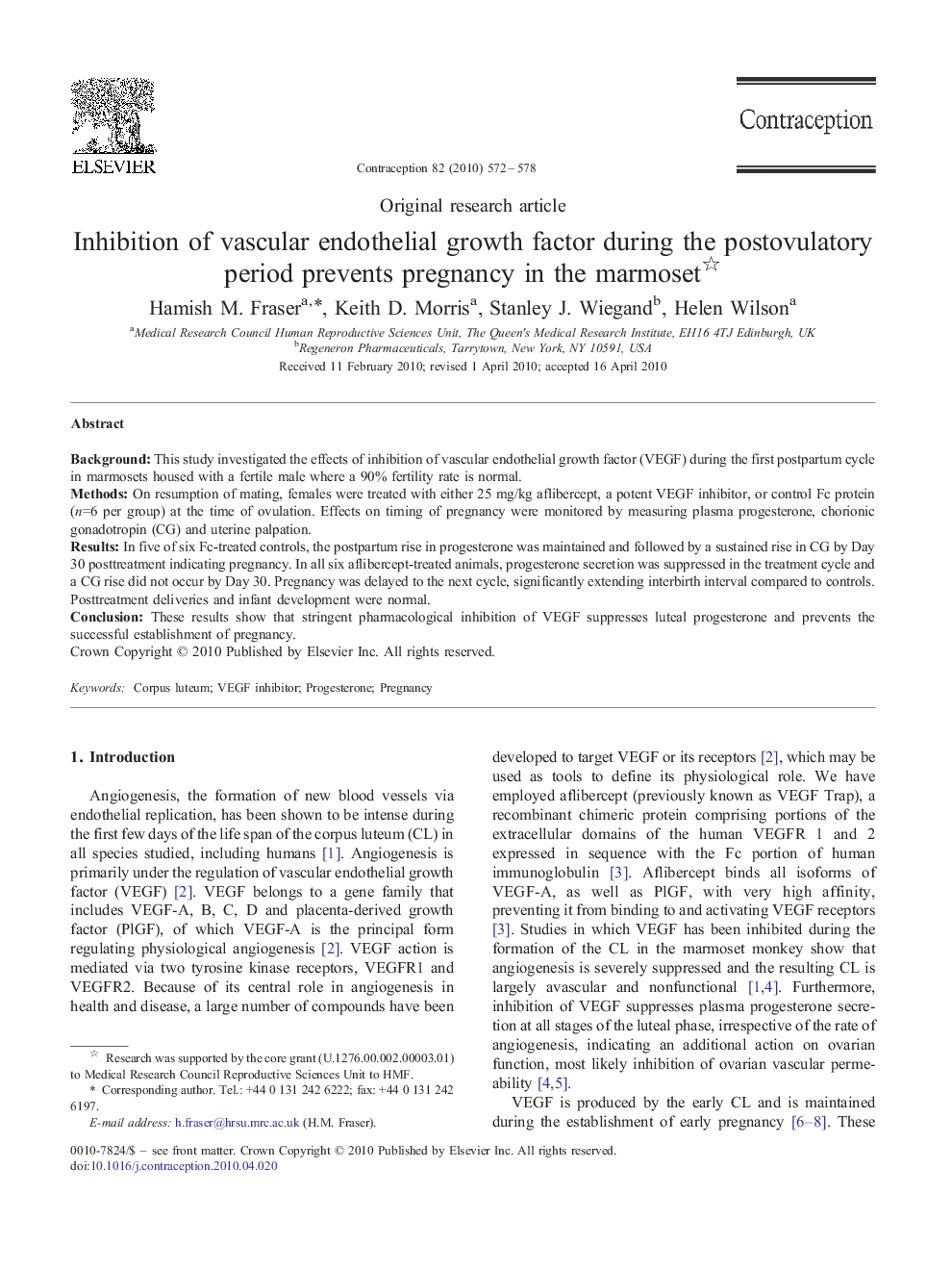| Article ID | Journal | Published Year | Pages | File Type |
|---|---|---|---|---|
| 3914355 | Contraception | 2010 | 7 Pages |
BackgroundThis study investigated the effects of inhibition of vascular endothelial growth factor (VEGF) during the first postpartum cycle in marmosets housed with a fertile male where a 90% fertility rate is normal.MethodsOn resumption of mating, females were treated with either 25 mg/kg aflibercept, a potent VEGF inhibitor, or control Fc protein (n=6 per group) at the time of ovulation. Effects on timing of pregnancy were monitored by measuring plasma progesterone, chorionic gonadotropin (CG) and uterine palpation.ResultsIn five of six Fc-treated controls, the postpartum rise in progesterone was maintained and followed by a sustained rise in CG by Day 30 posttreatment indicating pregnancy. In all six aflibercept-treated animals, progesterone secretion was suppressed in the treatment cycle and a CG rise did not occur by Day 30. Pregnancy was delayed to the next cycle, significantly extending interbirth interval compared to controls. Posttreatment deliveries and infant development were normal.ConclusionThese results show that stringent pharmacological inhibition of VEGF suppresses luteal progesterone and prevents the successful establishment of pregnancy.
